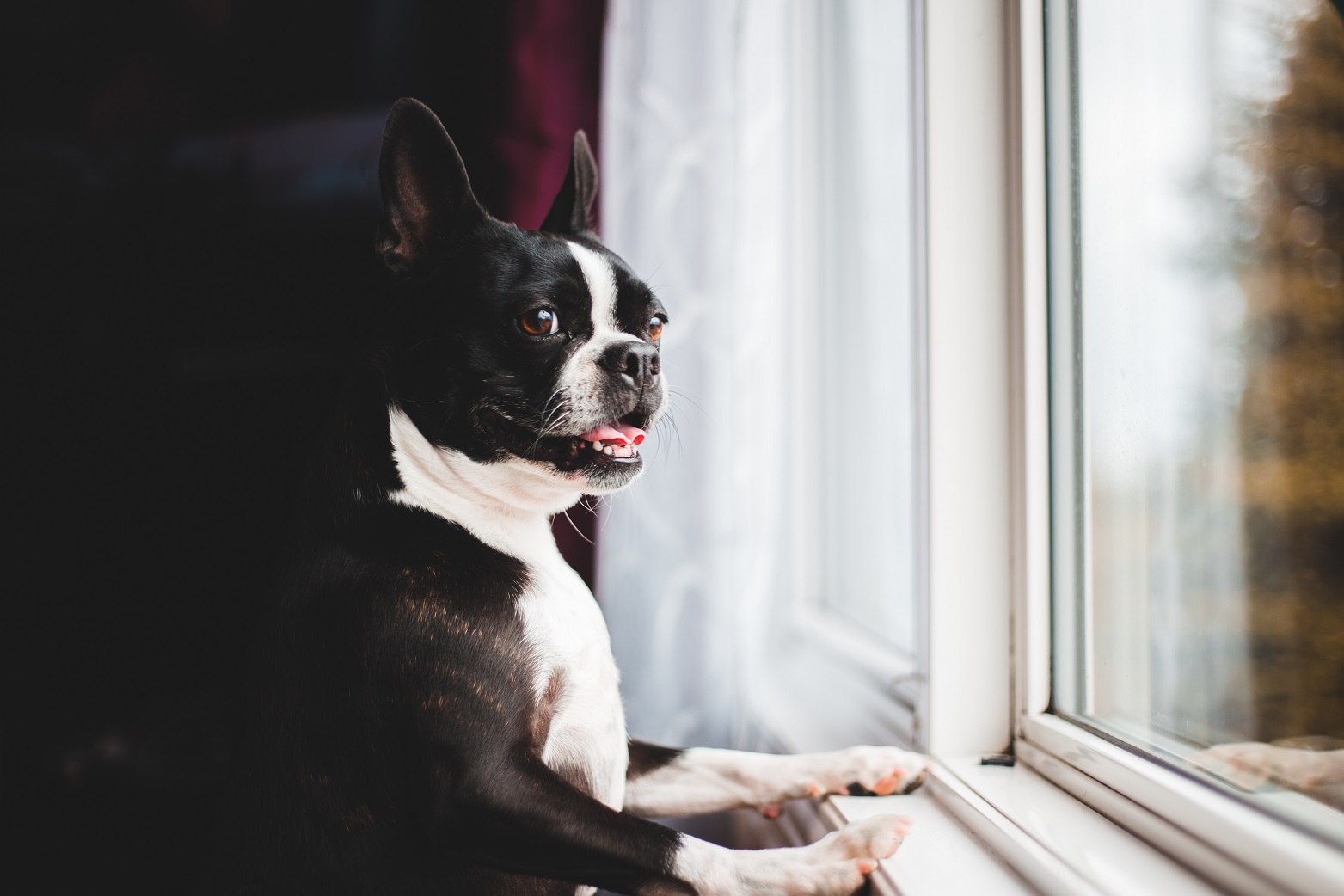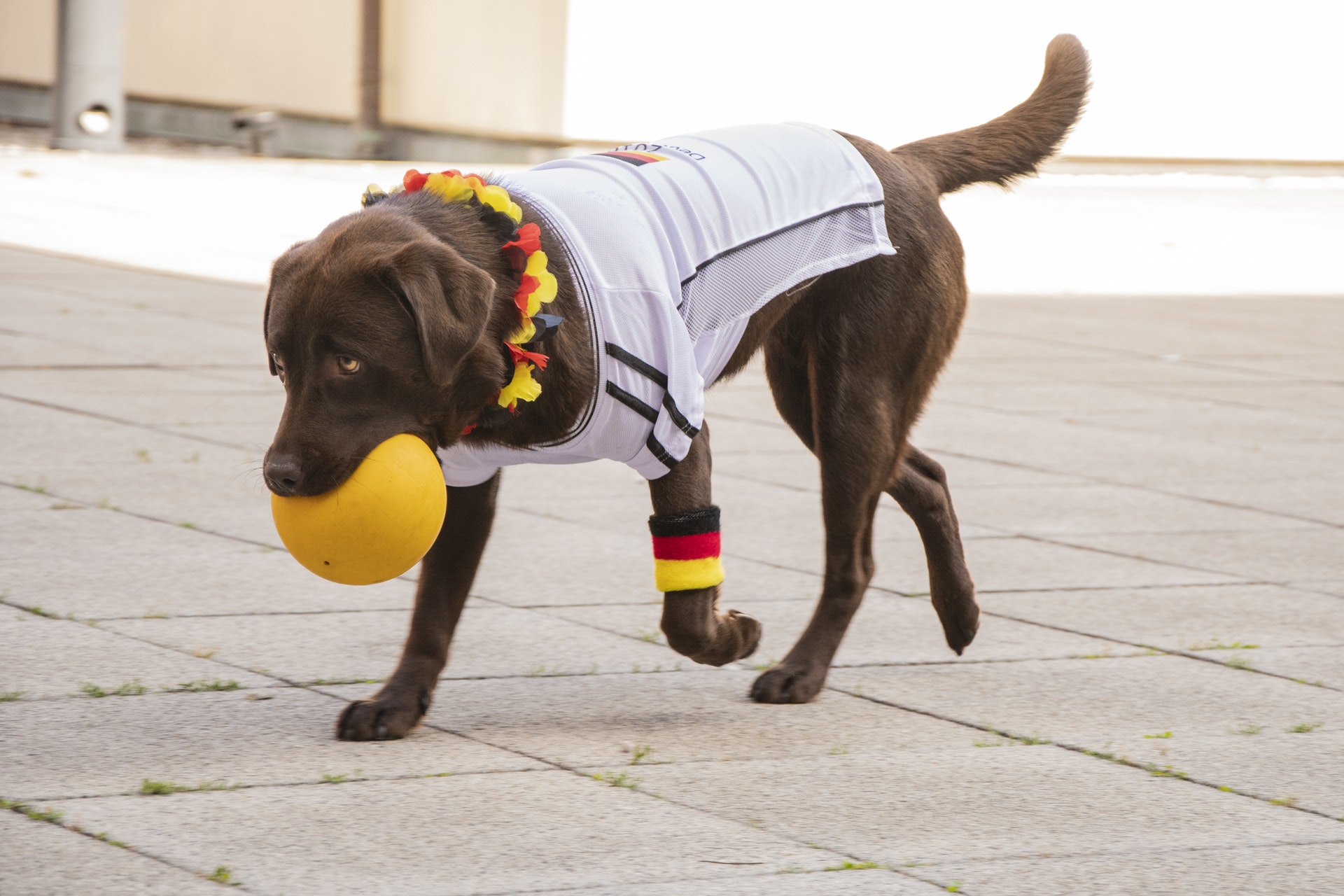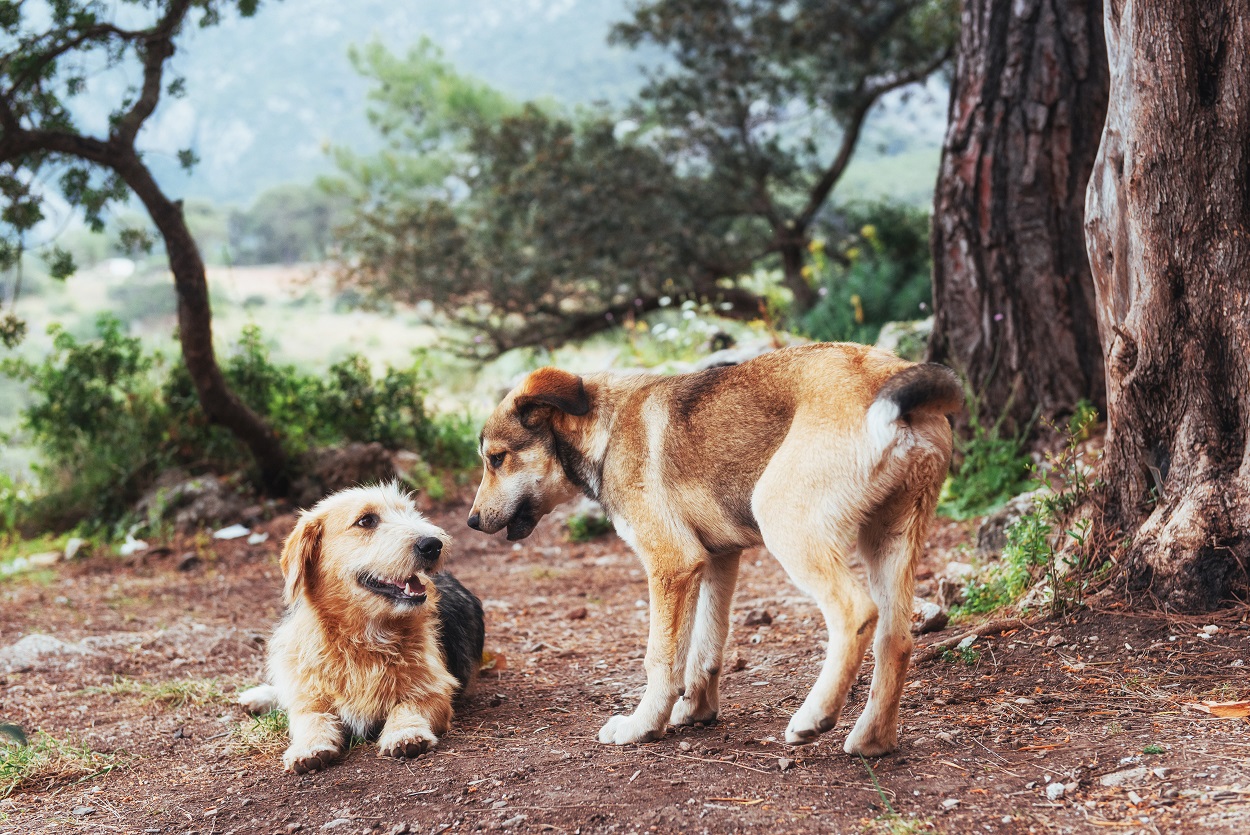If you’re wondering how to stop your dog barking at neighbors, then this is the most important page you’re ever going to read.
Because while barking might be perfectly natural behavior in the doggy realm, it’s a different story entirely when it’s directed at others who don’t appreciate it. (i.e your neighbors)
But here’s the thing…
Most of the time, barking has a reason. And it’s our job as responsible owners to figure out this reason.
But don’t despair. Yes, it’s annoying having a dog that barks incessantly. And you’re probably not in your neighbor’s good books right now.
But is it an impossible situation? …No.
Can you solve it? …Absolutely.
So here’s the good news. If your dog’s barking is quickly starting to become the talk of the neighborhood, you CAN put a stop to it before it escalates into anything more serious.
The trick, as with most behavioral issues like barking is…
a) establishing the root cause,
b) intervening
c) staying consistent
Now, if you’re ready to stop your terrorizing the neighbors with their incessant barking, the first logical step is teaching them how to be calm and in control of their emotion.
Because if you can ultimately teach your dog to relax, you’ll also find they’ll be a lot less likely to bark in any type of situation that triggers it.
So before you do anything else, I’d highly recommend grabbing a free copy of “My Everyday Dog Training Tools” from Dan Abdelnoor (aka Doggy Dan) over at The Online Dog Trainer.
Inside this short guide, Dan talks about what to do, but more importantly, what NOT to do to bring your dogs barking under control, before revealing a few simple exercises to help calm your dog in minutes.
Read the book, apply the exercises Dan recommends to your dog routine consistently, and you should see a marked improvement in their barking habit (or lack of it) a lot sooner than you think.
Here’s the video link to take a look: Click Here To Grab Your Free Copy Of My Everyday Dog Training Tools & Discover How To Finally Solve Your Dog Obsessive, Annoying Barking Habit Without Spending Hours Of Training Or Thousands Of Dollars!

Why Does My Dog Bark at the Neighbors?
As sure as eggs are eggs, dogs are gonna bark.
It’s natural, it’s normal, and most of the time, it’s nothing to be worried about. Barking is simply a dog’s way of communicating.
But there’s a world of difference between occasional barking and relentless, never-ending barking.
There’s also a huge difference between a dog that greets a neighbor with one or two friendly barks and one that turns into a wailing banshee whenever they make eye contact.
Ultimately, you’re never going to be able to train your dog not to bark at all.
It’s not necessary, and it’s not going to happen anyway.
But you can train them not to do it at specific times. It might require some work to get there, but if it means your neighbors can leave their house without making your dog go ballistic in the process, it’s worth the effort.
The first step in tackling the problem? Working out what’s causing it.
Although every dog is different, most will bark for one of the following reasons:
Territorial/Protective Barking
Even the sweetest, most placid dog can become a little monster when they feel their territory is under threat.
Guard dogs like Doberman Pinchers and Rottweilers are known to be the worst offenders when it comes to territorial behaviors. But make no mistake, any breed, and any dog is susceptible to its influence.
Usually, the barking will start as a warning when a neighbor or visitor is approaching the dog’s turf.
Once they cross the boundary, the barking will increase in volume and ferocity and can sometimes be accompanied by other displays of aggression.
Fear Barking
Dogs are just as likely to feel fear as we are. If something startles them or makes them feel anxious, their natural response is to bark at it.
Sometimes this is done in alarm; other times, it’s done in an attempt to make the scary thing go away.
Boredom Barking
Dogs are sociable animals. They thrive in a pack environment.
Left to their own devices for long stretches of the day, they can become bored, sad, and lonely. Barking in these cases is often simply a sign of unhappiness.
Friendly Barking
Barking is a dog’s way of communicating. When they see someone approach, they’ll let out a friendly flurry of barks in greeting.
When your dog barks to say hello, their barks will usually have a ‘happy’ tone and are typically accompanied by a wagging tail and air of excitement.
Attention Seeking Barking
When you want something, you ask for it. When your dog wants something, they bark.
It might be that they want to play, go outside, or get a snack. It could just be that they want attention.
Either way, they want it now, and they’re not going to stop barking until they get it.
Separation Anxiety Barking
Dogs with separation anxiety hate being alone. Leave them for even a short time, and they’ll work themselves into a lather of anxiety.
As well as excessive barking, they’ll usually show other signs of distress such as destructiveness, pacing, inappropriate elimination, and general anxiety.
Compulsive Barking
Compulsive barkers seem to bark for no other reason than to bark.
Anything and everything can trigger a barking session. Unlike other dogs who may bark for a few minutes before getting distracted, compulsive barkers are like broken records.
Along with making a racket, a compulsive barker might exhibit other repetitive behaviors such as running in circles or pacing backing and forth along a wall or fence.

How to Stop Your Dog Barking at Neighbors
Make no mistake, changing a dog’s behavior doesn’t happen overnight. Ingrained habits can be hard to break, especially if you’re dealing with an older dog who’s become stuck in its ways.
But while the process requires hard work and discipline, it’s more than do-able.
Act Now
The longer you let a problem go on, the worse it gets. Dogs are creatures of routine: the longer they do something, the more ingrained the habit becomes.
When you’re dealing with a problem like excessive barking, it’s even more important to take prompt action.
While barking isn’t always rooted in aggression, it’s one of the signs. Left unchecked, it can eventually lead to even more worrying behavior.
Regardless of what’s causing the problem and regardless of what solution you use to address it, start now.
Remember the Three C’s
If you want to see a positive change, you’ll need to practice:
- Calm
- Control
- Consistency
Before your dog respects you, you’ll need to establish yourself as their leader. To do that, you’ll need to establish a foundation of rules and boundaries.
And once you’ve established that foundation, you need to be consistent with it. Letting your dog bark uncontrollably one day and correcting it the next won’t work.
If you’re consistent in following through with commands and instructions. Your dog will have an easier time understanding what’s required of them.
The end result will be a calmer, more focused dog who respects you as their leader.
If all this sounds like a lot of work, don’t panic.
Doing something as simple as introducing the training techniques from My Everyday Dog Training Tools into your routine will go a long way to achieving the desired results.
Just remember that as with all things pooch related, the more consistent you are with training, the more rewarding it’ll be.
Increase their Exercise
If your dog is barking excessively, whether it be at the neighbors or anyone else. It could be a sign of boredom and pent-up energy.
Most dogs need at least an hour of exercise a day, although larger or working breeds will require more.
Add another walk to your routine and look for ways to incorporate activity into their day with games and training.
If your dog’s age and health are willing, you might even want to consider signing them up for an agility exercise.
Teach them to be ‘Quiet’
Teaching your dog the meaning of the word ‘Quiet’ can go a long way to achieving just that.
Next time they start to bark, say “Quiet” is an authoritative but calm tone.
When they stop to catch a breath, praise them and reward them with a treat.
Take care not to reward them while they’re still barking. Otherwise, you’ll reinforce the behavior.
Dogs are smart: practice the training regularly enough, and they’ll soon figure out that getting a delicious treat is more worthwhile than barking.

Provide Distractions
If your dog is an outdoor dog, bringing them inside will help reduce the noise impact on your neighbors.
It won’t, however, solve the problem if they’re barking out of loneliness or boredom.
In these instances, it’s down to you to give them something more entertaining to do.
If you’re away for long stretches of the day, consider asking a friend or dog sitter to pop by for an hour or so to play with them and walk them.
Interactive games and food-dispensing toys are also invaluable. Before you leave the house, leave a few lying around for your dog to play with.
With any luck, they’ll have too much fun to even notice the neighbors coming and going.
Remove Their Triggers
If your dog barks at the neighbors from your window, do the obvious: close the curtains.
If they spend most of the day outside, consider replacing any chain fencing with solid wood to block the view.
It may sound mean to remove your dog’s view of the outside world, but it’s actually the reverse.
For territorial and alert barkers, watching the comings and goings of the neighborhood is a source of stress.
They don’t necessarily want to spend every waking moment barking. The problem is, they see it as their duty to keep you and your property safe and alerted to any possible threats.
Removing those ‘threats’ from view lets your dog stand down from duty and get back to enjoying their day.
Get Help
Part of being a leader is knowing when to ask for help. Treating compulsive barking or barking caused by separation anxiety can be difficult, especially if you’re new to dog training.
If you feel overwhelmed, don’t hesitate to seek the help of a veterinary behaviorist or a certified applied animal behaviorist.
With their guidance, you’ll be able to help your dog overcome their issues and learn new, more acceptable ways of behaving.
Socialize Them
Dogs don’t instinctively know who’s a threat and who isn’t, particularly if their interactions with people outside the family are limited.
To a poorly socialized dog, every new or unfamiliar face is a potential threat. To overcome their fears, set up a friendly meet and greet with your neighbors.
Treats will go a long way to easing the introduction. Give your neighbors a bag of your dog’s favorite snacks and ask them to use them to reward calm behavior.
It may take a few attempts before your dog is fully comfortable. But over time, they should learn to put their trepidations aside.
Related Post: How To Socialize An Aggressive Dog – A Step By Step Guide

Avoid Negative Reinforcement
No one’s going to deny that constant barking is frustrating. But don’t let your emotions get the better of you. Shouting at your dog won’t work. If anything, it’ll make it worse.
Adding your voice to the choir will simply make your dog think it’s a competition to see who can make the most noise. Keep your voice calm and even.
Similarly, avoid allowing your dog to bark at certain things while discouraging them from barking at others. To a dog, a bark is a bark. If you want to address the problem, you need to be consistent.
It also stands to reason that you should avoid using muzzles or other constraints as a means of keeping your dog quiet while you’re not around.
They’re dangerous, and they’ll do nothing to address the problem as its root.
Closing Thoughts
You’re not going to stop your dog barking overnight. But don’t let that discourage you. With time and patience, this is a problem that’s more than manageable.
Try to bring the whole family into the training experience. Once everyone’s onboard, the process will be much smoother.
More than anything else, remember the three C’s. If you can stay calm, controlled, and consistent as you implement the solutions, you’ll be reaping the rewards before you know it.
